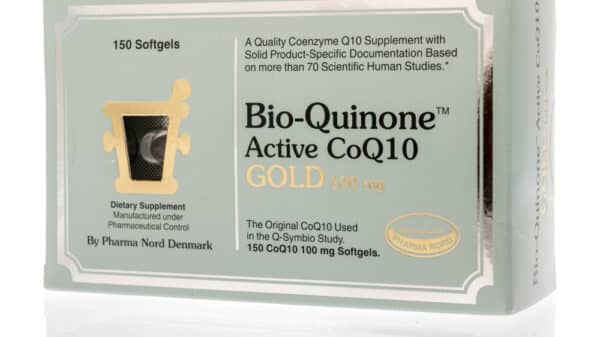Omega-3 fatty acids are crucial for our health. They support everything from heart function to brain health, reducing inflammation and improving overall well-being. While sources like fish oil are well-known, few options exist for those following a plant-based diet.
If you’re navigating a vegan lifestyle, you may wonder how to meet your omega-3 needs. Let’s explore the best vegan sources of these essential fatty acids, including docosahexaenoic acid (DHA), eicosapentaenoic acid (EPA), and alpha-linolenic acid (ALA).
Top Vegan Sources of Omega-3
1. Brussels Sprouts
These little green gems shine in the omega-3 department. One cup offers over 87 milligrams of ALA, and if you cook them, that number jumps to 270 milligrams per cup. Enjoy them roasted, sautéed, or steamed for a nutrient-rich side dish.
2. Algal Oil
This oil comes from algae and serves as one of the few vegan sources rich in DHA and EPA. Supplements typically provide 400–500 milligrams per serving, which can help meet your daily omega-3 requirements. Research has shown that algal oil matches the absorption of fish oil, making it an excellent alternative.
3. Walnuts
A powerhouse of healthy fats, walnuts deliver an impressive 2,542 milligrams of ALA in just one ounce. Toss them into salads, yogurt, or just grab a handful as a snack to boost your omega-3 intake.
4. Chia Seeds
Not only are chia seeds delicious, but they also pack a hefty nutritional punch. One ounce contains approximately 4,915 milligrams of ALA, significantly exceeding daily recommendations for adults. They’re incredibly versatile and can be added to smoothies, yogurt, or even used as a vegan egg substitute.
5. Perilla Oil
This Korean condiment extracts oil from perilla seeds and is rich in omega-3s, offering nearly 9,000 milligrams of ALA per tablespoon. Incorporating perilla oil into salad dressings or cooked vegetables can easily enhance your omega-3 consumption.
6. Flaxseed
Often touted as the best plant-based source for omega-3s, one tablespoon of ground flaxseed provides about 1,600 milligrams of ALA. Its mild, nutty flavor pairs well with cereals, smoothies, or baked goods. It can also serve as a simple egg replacement when mixed with water.
7. Spirulina
This blue-green algae is not just rich in omega-3s at around 230 milligrams per ounce, but it also offers a wealth of other nutrients, including protein and several vitamins and minerals. Add it to smoothies for an extra health boost.
8. Hemp Seeds
With approximately 6,000 milligrams of ALA per ounce, hemp seeds are a fantastic omega-3 option. Try adding them to smoothies, granola, or as a topping for your breakfast bowl.
Benefits of Vegan Omega-3s
Incorporating vegan omega-3 sources into your diet brings numerous advantages:
1. Heart Health
Omega-3 fatty acids help lower risk factors for heart disease, contributing to overall cardiovascular wellness.
2. Cognitive Function
These healthy fats support brain function and may enhance memory and learning.
3. Joint Health
Omega-3s can provide anti-inflammatory effects, reducing stiffness and boosting joint mobility.
4. Skin Health
These fatty acids may improve skin hydration and elasticity, promoting a healthy complexion.
For anyone committed to a vegan diet, understanding how to integrate omega-3 sources can significantly enhance your health. From crunchy walnuts to nutrient-rich leafy greens, a variety of flavorful foods can help you thrive while keeping your omega-3 levels optimal.Omega-3 fatty acids are essential for overall health, yet many of us overlook their significance.
They are not just crucial for heart health, but they offer numerous benefits across various aspects of well-being.
Health Benefits Of Omega-3S
Heart Health
Omega-3s aid in reducing diastolic blood pressure and lowering triglyceride levels. Both are vital for maintaining a healthy heart.
By incorporating omega-3s into your diet, you support cardiovascular wellness.
Inflammation Reduction
Omega-3 fatty acids have powerful anti-inflammatory properties. Research has demonstrated that they can lower levels of C-reactive protein, interleukin 6, and tumor necrosis factor α—common markers of inflammation.
This reduction can be beneficial for overall health and longevity.
Brain Function
As we age, cognitive decline can become a concern. Omega-3s may play a role in slowing this decline and offer protective benefits against conditions like dementia and Alzheimer’s disease.
Including these fatty acids in your diet can support mental acuity as you age.
Bone Health
Strong bones are essential for overall physical health. Omega-3s contribute to bone strength by enhancing calcium absorption.
This preventive measure can help reduce the risk of bone-related issues.
Mental Well-Being
Mental health conditions, such as depression and anxiety, can significantly impact quality of life. Studies suggest that omega-3 supplementation may aid in managing these disorders.
Sourcing omega-3s could be a simple yet effective step toward enhancing your mental well-being.
Sleep Quality
Struggling to get a good night’s rest? Increased omega-3 intake has been linked to improvements in sleep quality.
Incorporating these fatty acids into your meals may result in more restful sleep.
Potential Cancer Protection
Preliminary research indicates that higher consumption of omega-3s may be connected to a lower risk of certain cancers, including breast and prostate cancer.
Further studies are needed to fully understand this potential benefit.
Joint Health
For those with joint discomfort, omega-3s may provide relief. They have been shown to alleviate symptoms associated with rheumatoid arthritis, such as pain and stiffness.
Incorporating Vegan Omega-3s
It’s straightforward to increase your omega-3 intake. Consider incorporating foods rich in these fatty acids, such as chia seeds, walnuts, and flaxseed.
Smoothies made with spirulina or granola with nuts and seeds can ensure you get these essential nutrients on a daily basis.
For those on a vegan diet, algal oil supplements are an excellent choice.
































